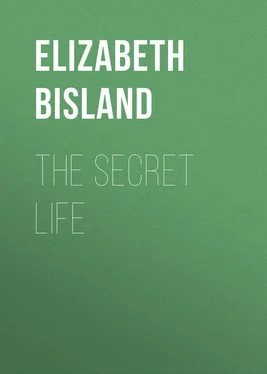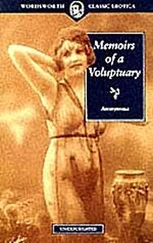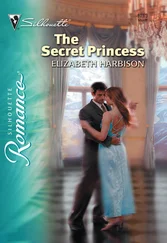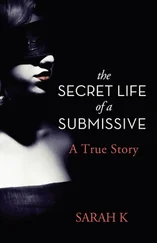Elizabeth Bisland - The Secret Life
Здесь есть возможность читать онлайн «Elizabeth Bisland - The Secret Life» — ознакомительный отрывок электронной книги совершенно бесплатно, а после прочтения отрывка купить полную версию. В некоторых случаях можно слушать аудио, скачать через торрент в формате fb2 и присутствует краткое содержание. Жанр: foreign_antique, foreign_prose, на английском языке. Описание произведения, (предисловие) а так же отзывы посетителей доступны на портале библиотеки ЛибКат.
- Название:The Secret Life
- Автор:
- Жанр:
- Год:неизвестен
- ISBN:нет данных
- Рейтинг книги:5 / 5. Голосов: 1
-
Избранное:Добавить в избранное
- Отзывы:
-
Ваша оценка:
- 100
- 1
- 2
- 3
- 4
- 5
The Secret Life: краткое содержание, описание и аннотация
Предлагаем к чтению аннотацию, описание, краткое содержание или предисловие (зависит от того, что написал сам автор книги «The Secret Life»). Если вы не нашли необходимую информацию о книге — напишите в комментариях, мы постараемся отыскать её.
The Secret Life — читать онлайн ознакомительный отрывок
Ниже представлен текст книги, разбитый по страницам. Система сохранения места последней прочитанной страницы, позволяет с удобством читать онлайн бесплатно книгу «The Secret Life», без необходимости каждый раз заново искать на чём Вы остановились. Поставьте закладку, и сможете в любой момент перейти на страницу, на которой закончили чтение.
Интервал:
Закладка:
The first day I ever spent in a tropical country I was charmed with the excessive novelty of everything about me; but suddenly that evening, being carried home in a chair by the coolie bearers, a flood of recognition poured over me like the waves of the sea, and for a few minutes the illusion was so strong as to leave me breathless with astonishment. I had the sense of having often done this before. The warm night, the padding of the bare feet in the dust, the hot smell of leaves, were all an old, trite experience. For days I struggled with that tormenting sense, with which we are all familiar, of being unable to recall a something, a name, that is perfectly well known – is "on the tip of the tongue," as one says – but all in vain; and in time the recognition grew fainter and more elusive with each effort to grasp it, until it slipped forever away into darkness. If such experiences as these are not inherited memories, what are they?
With sleep, the will becomes dormant. Waking, it guards and governs; chooses what we shall do and be and think; stands sentinel over the mind and rejects all comers with which it is not familiar. Unless the thought comes from within the known borders of the body's own life, the will will have none of it. But overtaken by fatigue and sinking into slumber with the night, his domain is left fenceless and unpatrolled, for with the will goes his troop of watchmen, judgment, logic, deliberation, ethics; and memory, ungoverned and uncontrolled, holds a feast of misrule. The barrier between past and present melts away; all his ancestors are merged into the individual; the events of the day are inextricably tangled with those of two centuries since, and this motley play of time is called a dream.
A man going back but to his great grandparents has already fourteen direct progenitors, and is heir of such strange or striking episodes of their fourteen lives as were sufficiently deeply impressed upon their memories to be transmittable. This alone is enough, one would think, to provide all the nights with material for the queer kaleidoscopic jumbling of leavings, with which the nimble mind diverts itself, turning over the leaves of its old picture-book alone in the dark while its sluggish comrade snores; but there is no reason to believe that there is a limit to these inheritances.
The most vivid sensation my night memory holds is of finding myself standing alone, high up in a vast arena. It is open to the sky and the night is falling swiftly and warm. Everyone has gone but myself, but there is a tremulous sensation in my mind, as of very recent excitement, noise, and tumult. I am waiting for someone who is coming through the arched door on the left, and I rise to go. I feel the rough coolness of the stone beneath my hand as I help myself to rise, and upon my throat and bosom I have a sensation of the light wool of my garment. It has the vivid familiarity of a personal and perfectly natural experience – so strong that, waking, I retain as keen a sense of it as if it were a happening of yesterday. I remember many more dreams of this type – momentary flashes of sensation of the trivial things about me, such as all persons have felt in their waking lives, only that the things about me in my dreams are totally unfamiliar to my waking brain. In one of these I am emerging from the back door of a small white house – intensely white in the glare of a fierce sun. The house seems square and flat-topped, built of stone and with no windows visible here in the rear. It opens on a narrow street of similar residences. A man is with me, dressed in a long black robe and wearing a curious black head-dress. He is reproaching me and remonstrating violently concerning my indifference in regard to religious matters. I look away, annoyed and bored by his vehemence, and the whole picture vanishes. It was as clear, as natural and familiar, as my own waking life, while it lasted… The narrow street of white houses seemed the only possible form for a street. I had no consciousness of anything different or more modern. The man's eager, stern face, with the heavy beard and the high head-dress, looked in no way strange or unfamiliar. With that double consciousness with which we are all familiar when awake, I watched the movement of his lips and the wagging of his beard as he talked, full of a sense of distaste, and thought, while listening to his flow of clear words, "How tiresome these religious men are!"
Another time I was aware of standing in the dark, sword in hand (I seemed to be a man and the seeming was not strange to me), listening with furious pulses to a confusion of clashing blades and stamping of feet. Under the surface of passionate excitement the deeper sub-consciousness said: "All is lost! The conspiracy is a failure!" I was aware of a cool bravado which recognized the uselessness of attempting escape. The dice had been thrown – they had turned up wrong, that was all. Yet so vigorous and courageous was the heart of this man that he was still buoyantly unafraid. There was a rush of bodies by him; the door swung back against him, crushing him to the wall, and a few moments later, under guard, he was passing through a long, low corridor of stone. The torches showed the groined arch above him, and, a cell being unlocked, for the first time he felt afraid. Inside was a big bear with a collar about its neck, and two villainous-faced mountebanks sat surlily upon the floor. The man was very much afraid at the thought of such companions, for his hands were tied and he had no sword; yet he reasoned jovially with his guards, not wishing to show his real terror. After some protests his sword was returned to him and he stepped inside, again cheerfully confident. The door clanged to behind him and the dream faded. All the conditions of the dream, the change of sex, the strange clothes and faces, the arched corridor, the men with the bear, seemed to my senses perfectly natural. They were quite commonplace, and of course. For the most part, however, my dreams are the fantastic hodge-podge common to dreamers, such as might result from the unsorted, unclassified memories of a thousand persons flung down in a heap together and grasped without choice. One curious fact I have noted is that though I am a wide and omnivorous reader, I have never had a dream or impression in sleep which might not have been part of the experience of some one of European or American ancestry. I am an ardent reader of travel and adventure, but never have I imagined myself in Africa, nor have the landscapes of my dreams been other than European or American.
Mr. Howells, in "True I Talk of Dreams," added confirmation on this point by saying that he had never been able to discover a dreamer who had seen in his dreams a dragon or any such beast of impossible proportions.
It suggests itself — en passant – that dragons and other such "fearful wild fowl" are not uncommon in the cataclysmic visions of delirium, but perhaps the potency of fever, of drugs, of alcohol, or of mania, may open up deeps of memory, of primordial memory, that are closed to the milder magic of sleep. The subtle poison in the grape may gnaw through the walls of Time and give the memory sight of those terrible days when we wallowed – nameless shapes – in the primæval slime. Who knows whether Alexander the Great, crowning himself with the gold of Bedlam's straws, may not be only forgetful of the years that gape between him and his kingly Macedonian ancestor? Even Horatio's philosophy did not plumb all the mysteries of life and of heredity.
Another interesting fact, in this connection, is that those who come of a class who have led narrow and uneventful lives for generations dream but little, and that dully and without much sensation; while the children of adventurous and travelled ancestors – men and women whose passions have been profoundly stirred – have their nights filled with the movement "of old forgotten far-off things and battles long ago." Again, it is a fact that many persons, while hovering on the borders of sleep, but still vaguely conscious, are accustomed to see pictures of all manner of disconnected things – many of them scenes or faces which have never had part in their waking life – drifting slowly across the darkness of the closed lid like the pictures of a magic lantern across a sheet stretched to receive them, and these, by undiscernible gradations, lead the sleeper away into the land of dreams, the dim treasure house of memory and the past.
Читать дальшеИнтервал:
Закладка:
Похожие книги на «The Secret Life»
Представляем Вашему вниманию похожие книги на «The Secret Life» списком для выбора. Мы отобрали схожую по названию и смыслу литературу в надежде предоставить читателям больше вариантов отыскать новые, интересные, ещё непрочитанные произведения.
Обсуждение, отзывы о книге «The Secret Life» и просто собственные мнения читателей. Оставьте ваши комментарии, напишите, что Вы думаете о произведении, его смысле или главных героях. Укажите что конкретно понравилось, а что нет, и почему Вы так считаете.












